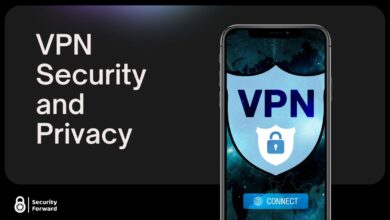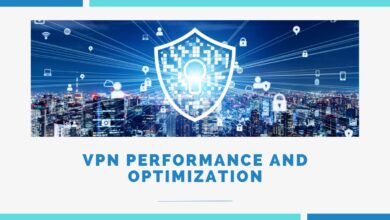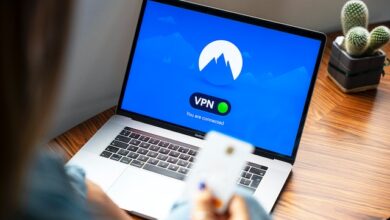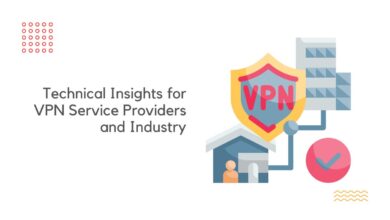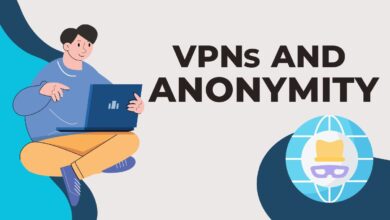The Role of VPNs in Safeguarding Your Data
KEY TAKEAWAYS
Digital privacy is a complex subject because it means dealing with interconnected data ecosystems, balancing privacy and innovation, and navigating a rapidly evolving digital landscape. On one hand, there’s the fact that digital privacy is a fundamental right. There’s also the fact that falling victim to data breaches can lead to identity theft, financial and reputational damage, loss of peace of mind, and other devastating and long-term consequences.
Plus, people who value their privacy and anonymity are not comfortable with the thought that government, financial, and commercial agencies are keeping tabs on them. On the other hand, these matters should be tempered by national security and law enforcement concerns, regulatory compliance, and innovation. These opposing topics are still being pitted against each other and remain subjects of intense debate in many parts of the world.
Taking Control of Your Online Safety and Privacy Through VPN Use
While policymakers are still in the process of finding a middle ground that works for everyone, regular internet users have taken it upon themselves to protect their data and online presence. You can do the same by using virtual private networks (VPNs) to regain control over your digital life, mitigate risks, and preserve your personal and professional integrity.
VPN services act as a shield against the vulnerabilities that can compromise your digital privacy and security. On top of looking for an ExpressVPN review or other resources, though, you need to have a clear understanding of how VPNs configure into your system of online privacy and security efforts. Knowing what a VPN subscription brings to the table is key to making informed purchasing decisions.
How Subscribing to a VPN Can Protect Your Online Privacy and Information
A VPN works by creating a secure and encrypted connection between your device and the internet. Routing your internet traffic through a remote server that is operated by the VPN service provider, which then encrypts your data and masks your IP address. Combining data encryption with masking your IP address will shield your online activities from cybercriminals, government surveillance, and other prying eyes like your internet service provider (ISP). Subscribing to a VPN service safeguards your privacy and protect your data in the following ways:
● Encrypting Your Digital Information – Data encryption, which refers to the process of converting information to make it indecipherable to others, is one of the primary ways that VPNs safeguard your data. Connecting to the internet through a VPN encrypts your internet traffic, making the said information unreadable to anyone who might be trying to intercept it. Consequently, this makes it significantly more difficult for hackers, cybercriminals, or other unauthorized entities to gain access to your sensitive information.
● Protection When Using Public Wi-Fi – Cybercriminals often take advantage of public Wi-Fi networks such as those found in cafes, airports, or hotels. By exploiting known security vulnerabilities, cybercriminals can intercept the data transmitted through the devices connected to the said network. You can protect your data by using a VPN to encrypt your information when using public Wi-Fi networks. Making a habit of shielding your data will give you peace of mind while you’re communicating or carrying out financial transactions online, regardless of the network you are using.
● Anonymity and Privacy – Connecting to the internet using a VPN server means masking your IP and replacing it with the IP of the VPN server. This is on top of encrypting the information that you are transmitting online. These measures limit the capability of websites, advertisers, or other entities to track your online activities back to your actual IP address. With your true identity hidden, you can browse the internet without being constantly tracked, targeted with personalized ads, or subjected to invasive profiling based on your behavior online.
● Preventing ISP Monitoring – It’s not unheard of for internet service providers (ISPs) to monitor and log the online activities and details of their customers. They can, for example, keep track of the websites you visit, the apps you use, and the data you transmit. Using a VPN is an effective way of limiting their capability to do this. Again, by encrypting your information and masking your IP using your VPN’s server, you can prevent your ISP from keeping tabs on your online activities. This means that your ISP won’t have access to detailed records of your browsing history, which is enough to limit their ability to sell your data to third parties.
A VPN is a critical ally to people who want to have better control over the use and distribution of their online data and personal information. At the same time, though, it’s important to remember that these subscription services work best when used alongside other common data security and privacy practices. In short, VPNs should be seen as a complementary layer of protection rather than a standalone solution.
For comprehensive security, it’s crucial to practice good cybersecurity measures, such as using strong and unique passwords, enabling two-factor authentication, regularly updating your software and operating systems, and being cautious of phishing attempts. Employing reliable antivirus and anti-malware software, keeping your devices encrypted, and backing up your data are also essential steps in maintaining robust data security. By combining these measures with the use of a reliable VPN service, you can create a powerful shield against potential threats and significantly enhance your overall digital privacy and security.
